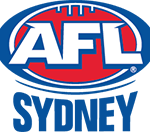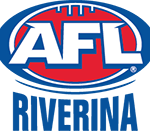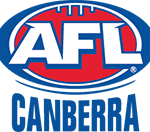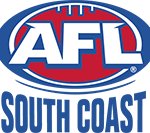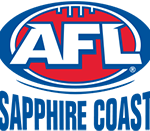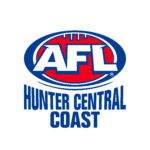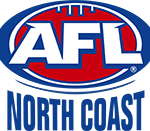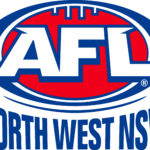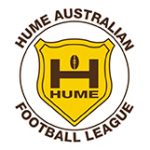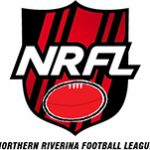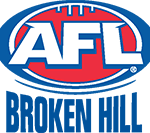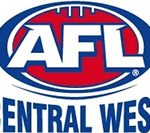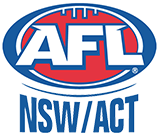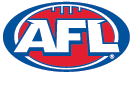“If you want to win the game you have to be prepared to pay the price”

Australian Football celebrates its 140th anniversary in New South Wales this year after the founding of the NSW Australia Football Association in Sydney in 1880. One hundred and forty coaches, players, umpires, administrators and media personalities from both the Elite (VFL/AFL) and Community level will be inducted into the inaugural New South Wales Australian Football Hall of Fame at an event to be confirmed later in the year.
Neil Cordy and Rod Gillett profile the nominees for the Hall of Fame:
Controversy was never something Allan Jeans courted throughout his amazing 31-year career as a VFL/AFL player and coach. But before it all started, he found himself right in the middle of one when he moved from Tocumwal to Finley in 1952.
Jeans accepted an offer to play at Finley and work at the Albion Hotel which was run by Finley coach Bert DeAbbel who was also making the move from Tocumwal.
Tocumwal were furious and refused to grant Jeans a clearance which forced him to sit out the season and miss a premiership.
Three years later he was off to St Kilda with the consolation of playing in Finley’s 1954 premiership.
Neither the Saints nor Jeans had a clue what was in store. His 77 games as a player (1955-1959) gave little indication either.
But two decades later he had transformed the course of St Kilda’s history.
The highlight came in 1966 when Kevin ‘Cowboy’ Neale’s five goals and Barry Breen’s wobbly point gave them their first and only premiership.
They also played in grand finals in 1965 and 1971, preliminary finals in 1970 and 1972 and made finals appearances in 1961, 1963, 1968 and 1973.
He finished with a win loss record of 193-138.
In the previous 16 seasons (1945-1960) before Jeans arrival as coach, the Saints had won seven wooden spoons, never got near a final and went 75-216.
By 1976 Jeans was in his words was “burned out” and took a five-year break from coaching in the VFL.
He took on the part-time role of coaching NSW in 1979-80 in the national club championships involving State league clubs from Victoria, WA and SA and representative teams from the other states. Under Jeans, the Sky Blues earned new-found respect.
In 1981 he jumped back on the horse and took over from David Parkin at Hawthorn.
It was the start of a beautiful friendship which produced arguably the greatest period of success of any club in the game’s history.
The Hawks had missed the finals in Parkin’s last two years but Jeans had them firing again in 1982 when they finished third. They then played in seven consecutive grand finals (1983-1989) and eight of the next nine winning five. Jeans missed the 1988 premiership after suffering a brain injury leaving Alan Joyce as caretaker.
At his funeral in 2011 John Kennedy Jnr. spoke on behalf of the players he had led to so much success. Kennedy described how Jeans set the tone for what was to come in his very first address, “Yabby said as players we did not have to like him but we must respect the position he holds at this football club,” Kennedy said.
“He will need to earn our respect and we his, he demanded we respect the position he held as coach”, he added.
It was also the first of many memorable motivational speeches to the players. Kennedy recalled some of his favourites in his eulogy.
“He would stress continually that in football and life you cannot have freedom without responsibility,” Kennedy said.
“That freedom to say and do things must be accompanied by a responsibility in what you say and do. You cannot have one without the other, he would roar.”
His half time address at the epic 1989 grand final is famous:
“It was about a mother who needed to pay the price for her son’s new shoes if she wanted them to last”. “She had to pay the price,” Jeans boomed. “If you want to win the game you have to be prepared to pay the price.”
Dermot Brereton and Robert DiPierdomenico paid the price with serious injuries including broken ribs, internal bleeding and in Dipper’s case a punctured lung. They played on and claimed Jeans fourth and final premiership.
Then there was his renowned sense of humour.
He was explaining the appointment of his great friend George Stone as runner:
“Well it’s like this,” Jeans said, “Napoleon during his times of war needed a messenger to get information to the troops. He decided to select the dumbest individual in his army because he believed if he could get the message through to him then it was more likely the message would get to the troops correctly! George is our runner.”
Kennedy said there was often banter between coach and players:
“We all knew he came from Finley,” Kennedy said.
“We would get into him about how small it was and how little he knew about the world. It was obviously completely wrong because he was a career policeman and saw a side of life we never did.”
There were also things he learned before he moved to the big smoke like his sense of right and wrong and compassion.
When he was a teenager working at the Albion Hotel in Finley he would look out for World War 2 veterans who had fallen on hard times. He would let them use the hotel’s shower to clean themselves up and often share his evening meal with them.
Allan Jeans was named Coach of the NSW Greatest Team at the Carbine Club AFL function in Sydney last year. This induction earnt him nomination to the New South Wales Australian Football Hall of Fame.
